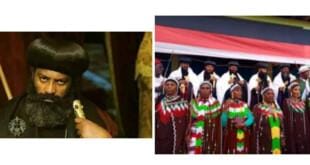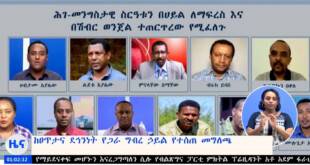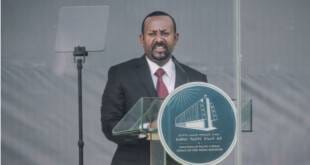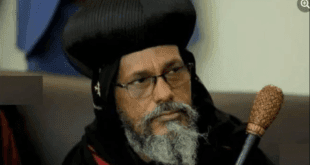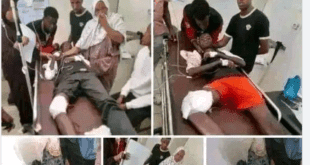http://atlantablackstar.com/
Over the weekend, anti-government protests continued in Ethiopia, as dozens have been shot to death by security forces in the Oromo and Amhara regions of the country.
As the BBC reported, nearly 100 people were killed as a result of clashes with security forces, reflecting complaints over political and economic marginalization. The deadliest incident took place in Bahir Dar, located in Amhara, where at least 30 people died on Sunday. Protesters chanted anti-government slogans and waved dissident flags, and demanded the release of opposition activists, according to The Guardian. Soldiers fired live bullets at protesters, according to residents, and hospitals are filled with the dead and wounded.
At issue is the Wolkayt district, land that Amhara protesters claim was illegally incorporated by the adjacent Tigray region in the north. Tensions have built up over two decades regarding the status of the land.
“So far, we have compiled a list of 33 protesters killed by armed security forces that included police and soldiers, but I am very sure the list will grow,” said Mulatu Gemechu, deputy chairman of the opposition Oromo Federalist Congress, according to The Guardian.
Meanwhile, Amnesty International noted that the deaths in Bahir Dar may constitute “extrajudicial killings” and found that 67 people were killed when “security forces fired live bullets at peaceful protesters” in different towns and cities in the Oromo region over the weekend.
Gemechu added that the deaths were in at least 10 towns across Oromiya, including areas that had experienced protest in the past. “Twenty-six people have been injured, while several have been detained,” he said, referring to three of his party members.
“We reaffirm our call to respect the constitutionally enshrined rights of all citizens, including those with opposition views, to gather peacefully and to express their opinions,” the U.S. embassy in Addis Ababa said in a statement, noting it was “deeply concerned” with the bloodshed in the two regions of Ethiopia.
Earlier this year, Atlanta Black Star had reported that protests in the Oromia state reportedly left 140 dead, 2,000 injured, 30,000 arrested and 800 disappeared. Further, in April and May of 2014, police opened fire and killed dozens of protesters.
Conflicts have reflected ethnic strife, economics and land. In a country in which the government owns all the land, the demand for arable land has conflicted with increased urbanization. To exacerbate tensions, the Ethiopian government has leased land to foreign investors.
Local Oromian farmers had opposed the proposed expansion of the nation’s capital of Addis Ababa, arguing that an encroachment on their farmland would result. People in Oromo had claimed they were being displaced from their ancestral homeland. The largest ethnic group in Ethiopia, the Oromo are 40 percent of the nation’s population and speak Oromo, a separate language from Amharic, the official language.
In the latest incidents of bloodshed, opposition leaders warn the situation will only worsen amid heightened tensions, calls for an end to human rights abuses and the release of political prisoners.
“People are desperate and the government is not respecting the demands of the protesters,” Gemechu toldNBC News. “Military troops everywhere and for any little thing, opposition and student protesters are imprisoned, beaten or killed.”
The latest protests have gained steam due to pervasive dissatisfaction over the eroding quality of life in Ethiopia.
“Inflation is going up, electricity, water, infrastructure systems are all collapsing,” said Gemechu. “Daily life here has become so difficult and the people refuse to be silent any longer.”
“I have not seen anything of the sort happening now in my entire life,” Mohammed Ademo, founder of Opride.com, told NBC News.
According to Aderno, what is taking place could topple the Ethiopian government, which explains its violent response to the protests.
“The closest historical parallel is the revolution that saw the demise of Ethiopia’s last emperor, Haile Selassie. Even in that case the protests were largely confined to urban centers. The current protests have swept an entire region — nearly half of the country — galvanizing two of the country’s largest ethnic groups — the Oromo and Amhara.”
Meanwhile, the Ethiopian government has made no comment, other than to say, through the state-ownedEthiopian News Agency, that the “illegal protests” by “anti-peace forces” had been brought under control.
